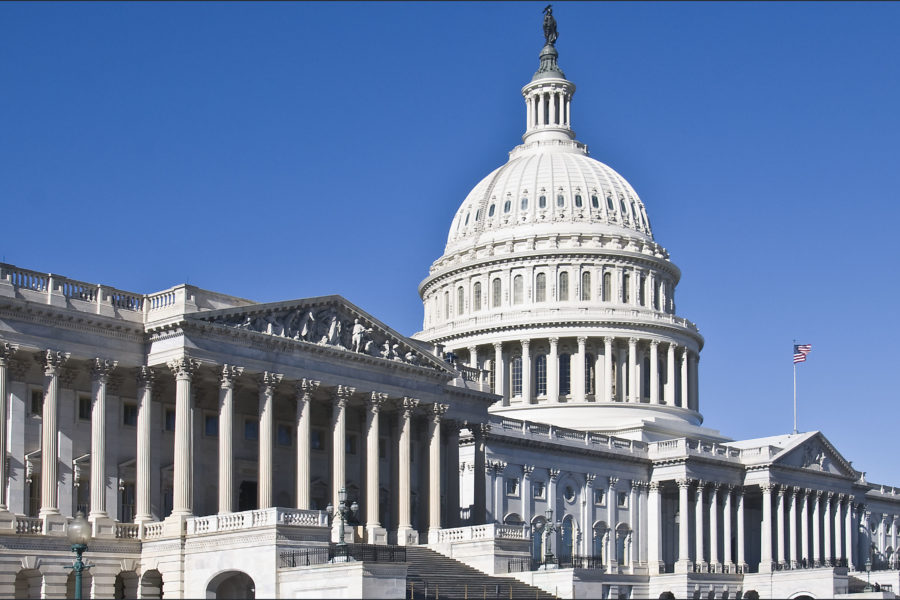As the House of Representatives struggles to elect a Speaker and begin the work of a new session, a bipartisan group of lawmakers began warning that the House can’t perform its oversight duties. The House has been locked in a holding pattern since Jan. 3, with ten ballots coming and going and no candidate receiving the needed 218 votes to take the Speaker’s gavel.
Republicans hold a slim majority in the House, but a group of about 20 from the party’s conservative wing have withheld their votes from Rep. Kevin McCarthy (R-Calif.), who has thus far refused to stand down and see if another candidate can win the 218 votes needed to get the Speaker’s job. Representatives must continue to vote until a speaker is elected and before other business can come before the chamber.
That means essential committees, such as the House Armed Services Committee, cannot do their work, such as participate in classified national security briefings. Rep. Mike Gallagher (R-Wisc.) highlighted that point during Jan. 4 press conference: “Right now, [Rep.] Don Bacon and I were supposed to be meeting with the Chairman of the Joint Chiefs in the SCIF here to talk about matters in the Indo-Pacific. But I’m informed by House security that technically I don’t have a clearance. I’m a member of the Intel committee, I’m on the Armed Services committee, and I can’t meet in the SCIF to conduct essential business.”
Such classified briefings occur regularly for HASC members and staff, said Rep. Adam Smith (D-Wash.) in a phone interview with Air & Space Forces Magazine.
“Our staff are getting classified briefings daily, they happen multiple times a day,” Smith said. “Members, particularly at the senior level of life like me, a couple times a week, at leas. So, in a normal situation, if the committee was actually formed and we were able to do our job, we would be getting this information on a daily basis, multiple times a day. And that’s all just blank and we’re all just blind.”
The longer the process drags on, the greater the impact, Smith said. Delays will slow down the committee’s work with reverberations that could last months. “They’ve got to pick a chairman,” he said of the Republican majority. “Then they’ve got to pick the members to be on the committee, which typically takes time. And then we’ve got to organize the subcommittees. So yes, it pushes things back.”
Delays will “make it much more difficult for us to do the other major piece of our job,” Smith said, “which is pass the defense bill, which we do every year, which is legislatively how we exercise our oversight.”
Congress has passed a National Defense Authorization Act every year for more than six decades, and it takes months to craft that measure. The HASC holds a series of hearings with the different military services and combatant commands, typically starting in March. So long as there is no Speaker, however, “all of that stuff is pushed back and thrown into a level of chaos,” Smith said.
Given the small majority Republicans hold in the House and the ability of a small faction to create legislative hurdles, Smith even went so far as to speculate the NDAA’s passage, normally a given, could be in peril.
“Are they going to let us pass the defense bill?” Smith said of the small group of Republicans who repeatedly voted against McCarthy. Many of them also opposed the 2022 NDAA last month. “They tried to stop us the last four years but we were in charge, so we had the votes, we were able to get it done,” Smith said of his fellow Democrats. “They’re going to undoubtedly stop us from passing a defense appropriations bill, because they’re going to stop all appropriations bills.”
So aside from the short-term impact of not having a functional Congress, “those near-term impacts of pushing back all of our work for the year,” he added, “there’s a long-term impact, that we now have a group of extremists effectively in charge of the House of Representatives who want to stop us from doing even our most basic work, including protecting this country. That’s something that everybody should be very alarmed about.”
Republicans who support McCarthy are just as frustrated. They accused the renegade wing of their party of allowing President Joe Biden’s administration to operate unchecked and of preventing Congress from having a say in national security issues like countering Russia and China and investigating the withdrawal from Afghanistan.
Rep. Mike Rogers (R-Ala.), who is expected to become the HASC chairman, is a stalwart McCarthy supporter. In a statement issued Jan. 5, he likewise accused the Republican holdouts .
“There is no oversight of the White House, State Department, Department of Defense, or the intelligence community.” said Rogers in a joint statement with Rep. Michael McCaul (R-Texas) and Rep. Mike Turner (R-Ohio). “We cannot let personal politics place the safety and security of the United States at risk.”


